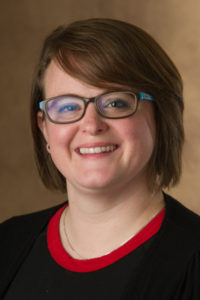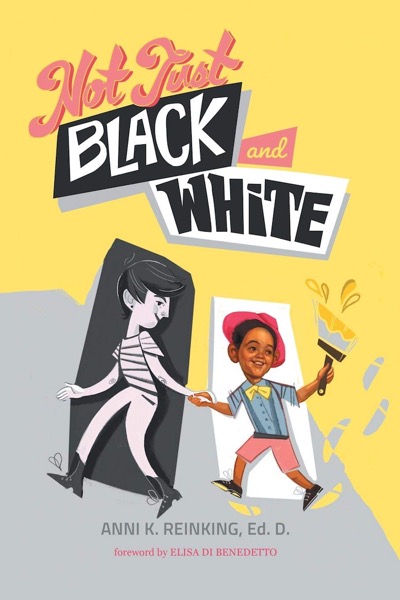 EDITOR’S NOTE—We are celebrating with author and scholar Anni Reinking as she has been selected to serve on a new statewide assessment team in Illinois to shape the future of early childhood education at the university level—with influence that likely will extend nationwide.
EDITOR’S NOTE—We are celebrating with author and scholar Anni Reinking as she has been selected to serve on a new statewide assessment team in Illinois to shape the future of early childhood education at the university level—with influence that likely will extend nationwide.
The effort is funded by the Robert R. McCormick Foundation, named for the famous former owner and publisher of The Chicago Tribune. (Among journalists, McCormick is especially remembered these days at the centennial of World War I for his role as a foreign correspondent, including interviewing Tsar Nicholas II before his assassination. McCormick later founded one of the most famous journalism schools in the world at Northwestern, north of Chicago. He had a life-long passion for improving education.)
Anni becomes one of two early childhood experts and faculty members chosen to serve from the Southern Illinois University Edwardsville School of Education, Health and Human Behavior (SEHHB) Department of Teaching and Learning.
We asked Anni to write about the importance of this new team’s work.
Here is her story …
.
“The function of the university is not simply to teach breadwinning, or to furnish teachers for the public schools, or to be a centre of polite society; it is, above all, to be the organ of that fine adjustment between real life and the growing knowledge of life, an adjustment which forms the secret of civilization.”
W. E. B. Dubois
By ANNI REINKING
Author of Not Just Black and White
The secret of civilization is often within hidden curriculum in classrooms.
For generations, students in the majority “figure out” how to “do” school. They have figured out the secret to be successful in a society that values grades, values who you know, and more recently in history, values the results of standardized tests. All of these “secrets” are often invisible to marginalized groups due to hidden curriculum and historically based institutional racism.
However, in the field of education, professionals have focused on competency based education as a way to combat the hiding of “secrets to civilization.”
I am one of those professionals. Recently I was asked to be on the leadership team of a statewide competency based education (CBE) assessment team for university early childhood programs. As a lifelong educator and social justice advocate focused in the field of education, this work is one more way I can be part of the work to advance the education of marginalized populations.
What is CBE? FAQs
Q: What is CBE?
A: The foundation of CBE focuses on content mastery of real-world skills.
Q: Why is this important, especially for marginalized populations?
A: Because grades do not represent who a student is, what the student knows, or how culturally responsive the classroom environment is to the student’s funds of knowledge. CBE is a student-centered practice. It moves away from standardized tests, which are often problematic and biased against marginalized populations. Teachers who utilize CBE in a classroom co-create goals with students, create personalized learning environments, and build deep relationships through conversations focused on learning.
Q: Is there research?
A: Yes, research includes work completed at NYU (Nolan, 2019) focused on CBE, culturally responsive teaching, and reaching underserved (marginalized) students.
Here are two of the key findings:
- For students of color, this approach can mean learning in an environment where one can experience being seen, valued, welcomed, supported, and held to exciting expectations. It also means students regularly engage teachers and school leaders who are willing to look at and work on their own beliefs, biases, and expectations, and strive to improve their cultural competency—the ability to be aware of one’s own cultural, social, racial identity and perspectives, and the ability to interact effectively with others who are not like yourself, however you define that difference.
- Transparency is a paramount value. Students’ learning goals and criteria for success should be shared from the outset—or co-created with learners. “Shared” does not mean “handed out.” Taking time to build shared understanding is crucial. This time helps students learn how to learn. It ensures there’s no secret path that some students innately know but others never figure out.
For generations there has been a secret to learning and a secret to being part of civilization. The secret code if often hidden from underserved (marginalized) populations. However, work continues to unhide curriculum and create environments where students feel heard, seen, and valued. One of those paths is CBE.
.
Dr. Anni K. Reinking is currently an Assistant Professor in the Department of Teaching and Learning at Southern Illinois University Edwardsville (SIUE). She is also the co-president of the Illinois Division of Early Childhood, president of the Illinois Association of Early Childhood Teacher Educators, co-chair of the Sharing A Vision conference, and a faculty lead on a statewide committee working on competency based, technology-embedded assessments. She is the author of numerous articles and three books:

